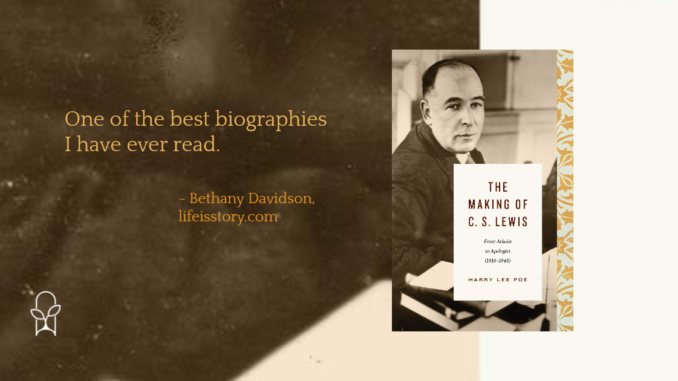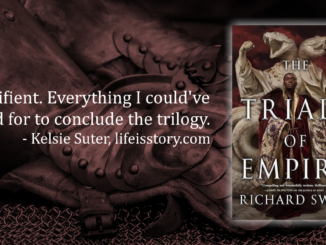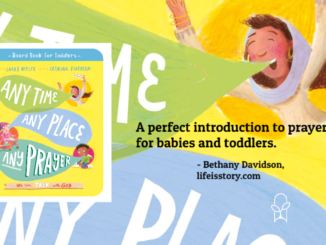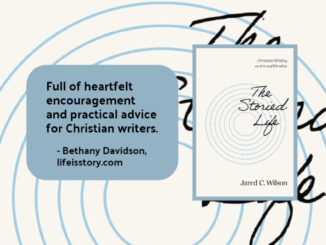
Also by this author: The Completion of C. S. Lewis (1945-1963): From War to Joy
Published by Crossway Books on June 1, 2021
Genres: Non-Fiction, Apologetics, Biography, Christian Life
Buy on Amazon
Goodreads

Experience C. S. Lewis's Captivating Transformation from Atheist to Christian
At the end of World War I, young C. S. Lewis was a devout atheist about to begin his studies at Oxford. In the three decades that followed, he would establish himself as one of the most influential writers and scholars of modern times, undergoing a radical conversion to Christianity that would transform his life and his work.
Scholar Harry Lee Poe unfolds these watershed years in Lewis's life, offering readers a unique perspective on his conversion, his friendships with well-known Christians such as J. R. R. Tolkien and Dorothy L. Sayers, and his development from an opponent of Christianity to one of its most ardent defenders.
This magnificent biography by Harry Lee Poe covers the middle years of C.S. Lewis’s life. The Making of C. S. Lewis (1918–1945): From Atheist to Apologist is the second book in a planned trilogy, and it delves into Lewis’s life with great detail, giving a sense of his personality, friendships and family relationships, spiritual search and conversion, academic work, popular writing and speaking, and experiences during World War II. I enjoyed this tremendously as a lifelong Lewis fan and a history major, and appreciate the excellent research that went into this. One of my pet peeves with biographies is when an author reads between the lines in someone’s life, creating theories or imagining scenes that have no documented basis in reality. Poe entirely avoids that issue, and bases this entire book on clearly cited documentary evidence.
Excellent Scholarship
Poe writes about Lewis’s conversion with careful nuance and understanding, drawing on multiple different sources to paint a complete picture of this often oversimplified story. He engages deeply with Lewis’s philosophical transformation, and charts his journey to becoming a public apologist for the Christian faith while also doing significant academic work at Oxford. Unlike some biographies of well-known figures, this book does not select particular aspects of Lewis’s life to focus on, but gives a sense of the whole. I really enjoyed this book, found it both educational and frequently inspiring, and appreciated the opportunity to sort my knowledge of Lewis into a clearer chronology, with additional context that I didn’t have. Poe also does an excellent job of engaging with controversies about Lewis’s life, such as the nature of his relationship with Mrs. Moore, the woman he shared a household with for years.
During World War I, Lewis and a friend pledged that if one of them died, the other would care for his fallen comrade’s parent. Lewis kept his promise, lived with Mrs. Moore and her daughter for years, and cared for Mrs. Moore through declining health until her death. The biography conveys how sacrificial this was for Lewis, since Mrs. Moore was an extremely difficult person to live with, and Poe attributes common assumptions to poor scholarship and modern interpretations from after the sexual revolution, arguing that if Lewis and Mrs. Moore did have a sexual relationship, they couldn’t have possibly kept it secret from her daughter, their maids, their frequent boarders, and all of the friends and relations that they kept an open door to in their home. Poe concludes that even though this was an unusual living arrangement, it reflects Lewis’s sense of chivalry as Reepicheep, not as Lancelot.
Recommendation
The Making of C. S. Lewis is an excellent biography. Some people will find it far too detailed for their interest level, but it is a great resource for major Lewis fans, scholars, and people who enjoy in-depth biographies. I have already recommended this book to some of my friends, and am interested in reading the rest of the trilogy. This is one of the best biographies that I have ever read, and even though it took me a while to get through it, I enjoyed refreshing my memory of details about Lewis’s life and learning so much more about so many different elements of his thoughts, experiences, and relationships. I would highly recommend this to people who share my interest in Lewis and in this period of history, and admire the careful work that went into the research, organization, and writing.



